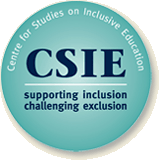
supporting inclusion, challenging exclusion
Concluding observations of the UN Committee on Migrant Workers – extracts concerning inclusive education, 2006-2009
Update - 2012
CSIE regrets that it currently does not have the capacity to update these pages. We hope to resume this work at the earliest opportunity. We apologise for any inconvenience caused.
A
Azerbaijan
(30 April 2009, CMW/C/AZE/CO/1 Advance unedited version, Concluding observations on initial report, paras. 24, 25, 30 and 31)
“While taking note that, according to the delegation, migrant workers have equal rights with citizens of Azerbaijan, the Committee is concerned at information that migrant workers, in particular undocumented and irregular migrant workers, and members of their families, may in practice suffer from various forms of discrimination, in particular in the area of employment, education, and housing.
“The Committee encourages the State party to:
a) intensify its efforts to ensure that all migrant workers and members of their families within its territory or subject to its jurisdiction effectively enjoy the rights provided for in the Convention without any discrimination, in conformity with article 7;
b) intensify its efforts by promoting information campaigns for public officials working in the area of migration, especially at the local level, and for the general public on the elimination of discrimination against migrants.
“While taking note of the information provided by the delegation in this regard ... the Committee remains concerned at reports received that ... children of migrant workers in an undocumented or irregular situation have difficult access to education.
“The Committee recommends that the State party take the necessary measures, including legislative amendments, to ensure that the provision of basic services, such as education and urgent medical care, do not depend on the provision of a residence and/or work permit by the migrant worker and to guarantee the rights of migrant workers and their families, including those in an undocumented or irregular situation, under articles 28 and 30 of the Convention.”
E
Ecuador
(5 December 2007, CMW/C/ECU/CO/1, Concluding observations on initial report, paras. 35 and 36)
“The Committee is concerned at the information that a considerable number of migrant children, and notably children of irregular migrant workers, do not have access to the educational system in Ecuador and that this may be caused, inter alia, by the fact that there is a high number of children of migrant workers who are not registered at birth or afterwards either because their parents fail to register them for fear of being deported or because their registration is refused on the ground of the irregular status of one or both parents.
“The Committee recommends that the State party take appropriate measures to ensure that access to education is guaranteed to all migrant children in accordance with article 30 of the Convention. Furthermore, the State party should intensify its efforts to guarantee that each child of a migrant worker shall have the right to a name and to registration of birth throughout the country, in accordance with article 29 of the Convention.”
Egypt
(25 May 2007, CMW/C/EGY/CO/1, Concluding observations on initial report, paras. 20, 36 and 37)
“... The Committee is concerned about reports that some migrant workers and members of their families suffer from various forms of discrimination in the area of employment, housing, limited access to health and education and from social stigmatization.
“The Committee notes with concern that most children of documented migrant workers do not have access to public schools and that the children of undocumented migrant workers do not have any access to the schooling system, whether public or private.
“The Committee recommends that the State party grant all children of migrant workers, whether documented or undocumented, access to schools on the basis of equality of treatment with Egyptian children in accordance with article 30 of the Convention.”
P
Philippines
(1 May 2009, CMW/C/PHL/CO/1 Advance unedited version, Concluding observations on initial report, paras. 45 and 46)
“The Committee expresses concern over the situation of children and the negative impact on children whose parents have migrated abroad. Information presented before the Committee points to children with at least one parent working overseas living with loose family ties and performing worse in school, notably in case of an absent mother. This is of concern to the Committee given that 50% of all Filipino migrant workers are women.
“The Committee encourages the State party to support a comprehensive study on the situation of children of migrant families, with the aim of developing adequate strategies to ensure their protection and the full enjoyment of their rights through, inter alia, community support programs, education and information campaigns and school programmes. The Committee encourages the State party to continue its collaboration with NGOs in favour of these children and their mothers.”
S
Syrian Arab Republic
(2 May 2008, CMW/C/SYR/CO/1, Concluding observations on initial report, paras. 12 and 13)
“While noting that Syrian law does not generally discriminate between Syrian nationals and Arab migrant workers in the areas covered by the Convention, the Committee remains concerned that non-Arab migrant workers and their families, in some instances, may be discriminated against in practice, especially at the local level, in their enjoyment of rights and freedoms under the convention and in their ability to access employment, housing, health care and education.
“The Committee encourages the State party to intensify its efforts:
a) to ensure that all migrant workers and members of their families within its territory or subject to its jurisdiction enjoy the rights provided for in the Convention without any discrimination, in conformity with article 7....”
Page last updated: Wednesday 21 February 2024